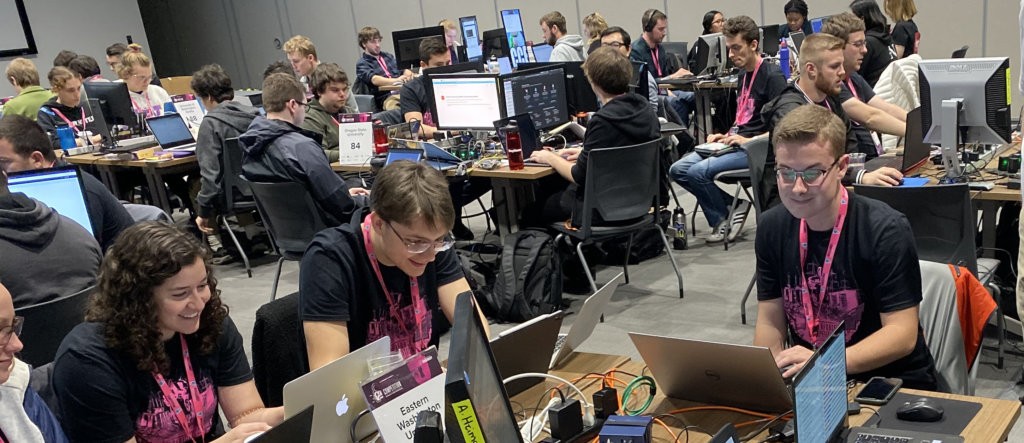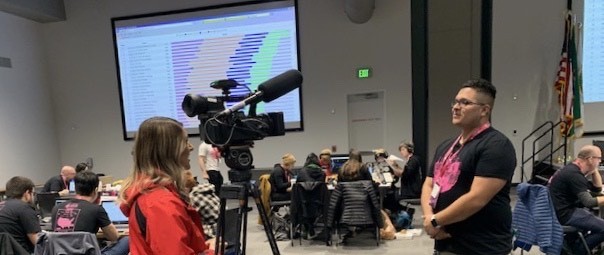How do you learn to protect a computer system from cyberattacks? You practice in a real-world setting where professional hackers are trying to break into your system.
That training scenario is exactly what a team from Eastern Washington University encountered recently as the university’s first-ever participants in the nationwide CyberForce Competition.
The U.S. Department of Energy (DOE) hosts CyberForce simultaneously at 10 DOE National Laboratories across the country. The event involves more than 100 college and university teams competing against each other to defend a simulated cyber-physical infrastructure from professionally executed cyberattacks.
The team from EWU, appropriately named Eagles Inferno, competed at the Pacific Northwest National Laboratory in Richland, Washington on Nov. 16. But as team captain and EWU computer science senior Emilio Campos explains, the competition actually began three weeks earlier with preparation.

“We are given this environment and we have to secure it,” says Campos. “Within those three weeks we have to clean up the code, make sure all of the services are up and running, perform best security practices like closing up ports and setting up firewalls just to ensure that when competition day comes we’re all ready and set to go.”
After arriving at the competition site, he says, then the action starts. “Once you get there you’re doing instant response.”
“Instant response” at the competition involves team members besting their peers against so-called “penetration testers.” Pen testers, as they’re often called in the cybersecurity world, are professional hackers who are authorized to simulate a cyberattack on a computer system to evaluate the security of the system. In the CyberForce Competition, it’s all about how each team responds to those attacks.
“Who can perform the best against those attacks coming in,” says Campos. “And when an attack does successfully happen, how well you’re able to remediate it or control what’s happening.”
Following a hard hit in the middle of the competition, team Eagles Inferno finished in the lower half of the competing schools. However, Campos says the team accomplished exactly what they had hoped to.

“Most of the reason we went was for the learning experience because this was Eastern Washington University’s first time participating,” he says. “We kind of went in blind. We had no idea how to prep for this, how much time was needed to prep, so we did our best. Next year we definitely will do great.”
Campos’ teammates included EWU students Tyler Rettkowski, Luke Mattfeld, Evan Sanford, Kayla Foremski and Daylyn Hoxie. Stu Steiner, an EWU computer science senior lecturer served as the team’s mentor. While Campos will graduate before next year’s competition, he says other members of the team plan to make Eastern a perennial player in the battle for CyberForce supremacy. It’s an experience Campos says is invaluable.
“The biggest reason to go is the hands-on experience that you get,” he says. “It reaches way further than the classroom is ever going to get you.”

